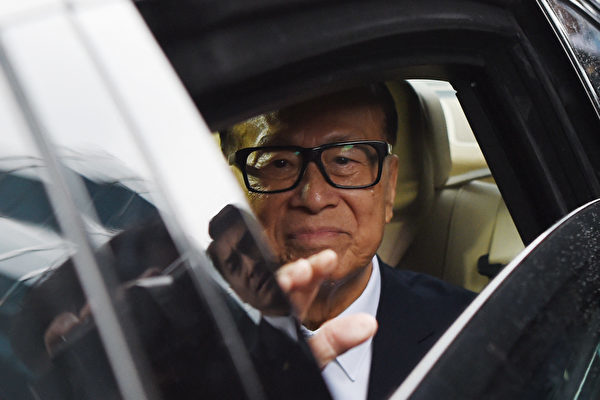Kaifeng Public Security Bureau Incident Report (Online Image)
[People News] On July 27, Shi Yongxin, the abbot of Shaolin Temple who had stood unshaken for 38 years, suddenly "crashed" after an official announcement by the Mount Song Shaolin Temple Management Office. Over the decades, Shi had been repeatedly entangled in scandals involving money and women, yet his CEO-like career continued uninterrupted—until now. Netizens speculate his downfall has to do with trouble among his powerful backers. But in truth, the real cause of his collapse might trace back to a land purchase in Zhengzhou in 2022.
In 2022, a company called Henan Tiesong Digital Technology Co., Ltd., indirectly owned by Shaolin Temple's investment arm, won a commercial land bid in Zhengzhou for 452 million yuan. The project planned to build a performing arts centre and a five-star hotel. Although the temple claimed it was "purely a financial investment," critics noted the project had little relevance to Shaolin culture, accusing it of using a religious IP to speculate on real estate. Estimates suggested the land could yield over 1 billion yuan in profit, significantly surpassing Shaolin Temple’s annual ticket revenue (350 million yuan in 2017).
As public criticism mounted, Shi Yongxin began withdrawing from Shaolin’s commercial network. On April 12, 2022, both he and a monk named Shi Yonggan officially exited the shareholder list of Shaolin Intangible Asset Management, transferring full ownership to the temple itself.
Political commentator Wen Zhao believes Shi Yongxin sensed a tightening political atmosphere. Continuing to act with such high-profile financial ambition would bring trouble, so he handed over equity and retreated behind the scenes. But as Wen Zhao pointed out, Shi is essentially a businessman, and such a retreat likely signals that his political protectors were in trouble.
Moreover, the Zhengzhou land deal may not even be Shi’s biggest scandal. Wen Zhao pointed to a “Kaifeng City Public Security Bureau incident report”, circulating online, which he believes is not an official document but rather a leak disguised as a police notice—a deliberate early whistle-blow.
The report contains two eye-popping numbers: $41.326 billion USD allegedly transferred by Shi Yongxin to Shaolin Temple’s overseas branches. A supposed total net worth of $153.128 billion USD for Shi Yongxin
Wen Zhao calls these numbers wildly implausible. For comparison, ByteDance founder Zhang Yiming, China’s richest person in 2025, is worth just over $60 billion USD. Back in 2015, whistleblowers already claimed Shi had $3 billion USD, and while his investments have grown, there’s no way his net worth could exceed $100 billion USD.
Still, the report’s claim that $40+ billion USD was transferred abroad doesn’t even include over 40 overseas affiliate companies related to the Shaolin Temple.
Wen Zhao argues that if Shi Yongxin really moved billions abroad, this would almost certainly constitute cross-border money laundering, likely involving criminal networks. In such a case, Shi would not only be the main financier but also an agent for others, meaning not all the money was his. Some may have belonged to his powerful patrons.
Shi had been planning his overseas commercial expansion since 2015, selecting Australia during its real estate boom. That same year, he founded the Shaolin Temple Foundation Australia and purchased land under the temple’s name.
In Shoalhaven, New South Wales, Shi personally bought 1,284 hectares for AUD 4.162 million (about 20.4 million RMB). The proposed Shaolin Village project was supposed to cost AUD 386 million and include a Shaolin Temple branch, a four-star hotel, a kung fu academy, and supporting facilities.
But a decade has passed, and the so-called Shaolin Village remains a ghost project—not even the grass has been cut. Tall weeds have overtaken the site.
Wen Zhao noted that this project fits a textbook example of money laundering: use a bogus investment company as a front.
Here’s how the alleged scheme works: The land is bought in Australia. Black money from Chinese elites is funnelled into Australia via Shaolin Temple companies. Luxury homes are bought using this "religious" capital. Children of Chinese officials acquire Australian residency and take over the assets quietly. In the end, the temple is never built. But the dirty money becomes legal property assets, cleaned through this elaborate network.
According to the fake police report, Shi Yongxin also transferred funds abroad using projects like temple construction, cultural promotion, and marketing activities. In reality, these are likely fronts for sending money to overseas shell companies.
Wen Zhao says this is another classic laundering method. Money is wired abroad under the guise of business expenses. But who are the companies supposedly handling the temple building and publicity? They’re actually Shi’s own companies, or those run by his associates. These people form the next link in the money laundering chain—transforming dirty money from China into legal local revenue. Profits then return to Shi and his backers through dividends and shareholder payouts.
Wen Zhao concludes: "As the saying goes, pull up a radish and the mud comes with it. Shi Yongxin is a big radish, and naturally, he’ll drag a lot of mud out with him." Who exactly will be implicated—who is that "mud"? That’s likely to be the next explosive revelation.
It’s worth noting that Shi Yongxin once revealed that Shaolin Temple has established over 40 companies globally, supposedly to spread Buddhist culture and martial arts around the world. △









News magazine bootstrap themes!
I like this themes, fast loading and look profesional
Thank you Carlos!
You're welcome!
Please support me with give positive rating!
Yes Sure!